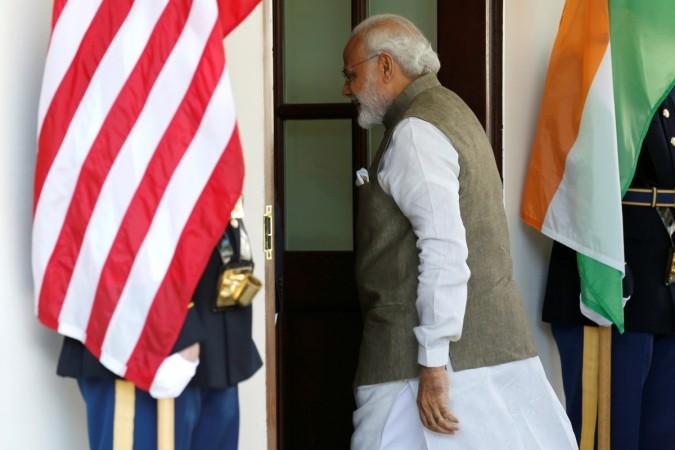
A key amendment needed to make changes in the U.S.'s export control regulation could not be passed in the Senate, thereby failing to recognise India as a "global strategic and defence partner" of the U.S., as reported by Press Trust of India.
An amendment to certain provisions of the National Defence Authorisation Act (NDAA-17) would have cemented India's status as "global strategic and defence partner" of the U.S. However, only NDAA got a thumping bipartisan approval vote of 85-13, while the key amendment could not be passed.
The NDAA 2017 Bill was approved by the U.S. House of Representatives on May 21, prior to Prime Minister Narendra Modi's visit to the U.S. It was reported then that this would put India on par with the U.S.'s NATO allies with regards to defence trade, including transfer of technology and sale of defence equipment.
Following talks between Modi and U.S. President Barack Obama recently, the U.S. had recognised India as a "major defence partner" in a joint statement.
If approved by the Senate, the partnership would have also supported combined military planning of the two countries to counter piracy, assist in humanitarian disaster and relief, and build maritime domain awareness.
"The (Senate) amendment (SA 4618) was not adopted to the NDAA," PTI reported, citing a Congressional aide. It added that this amendment too had bipartisan support in the U.S. Congress.
Senator John McCain, who moved the Bill, regretted in a statement that "the Senate was unable to debate and vote on several matters critical to our national security, many of which enjoyed broad bipartisan support." The McCain amendment, as the report called it, said the two decades of Indo-U.S. relationship had turned into a "globally strategic and defence partnership" based on shared democratic values, greater economic cooperation, regional stability, security and peace.
It is only when both Senate and House of Representatives pass the NDAA-2017 amendment will it reach President Obama, who can then sign it into a law.
This bill will allow the U.S. to designate an official, who will be focusing on U.S.-India defence cooperation, assisting in the transfer of defence technology. It will also allow the U.S. government to maintain a special office in the Pentagon that is devoted to U.S.-India Defence Technology and Trade Initiative.

















